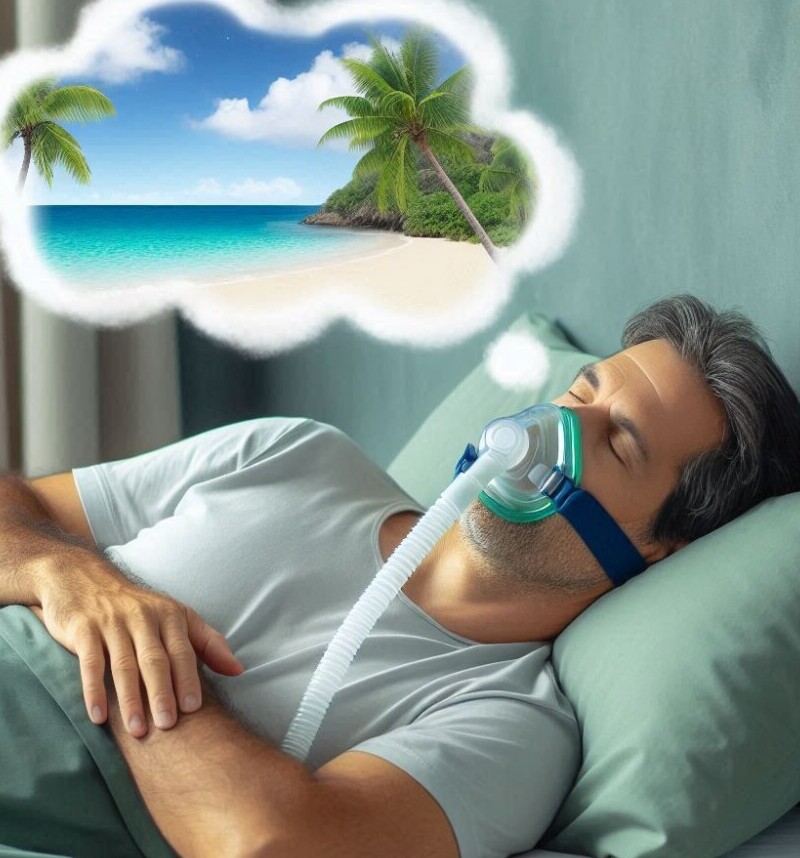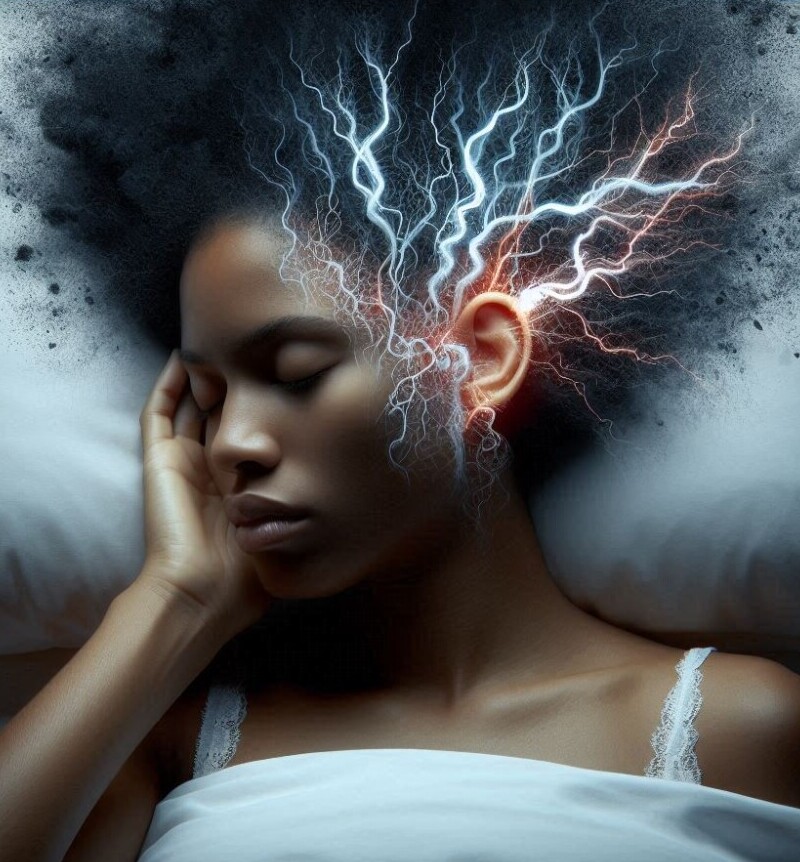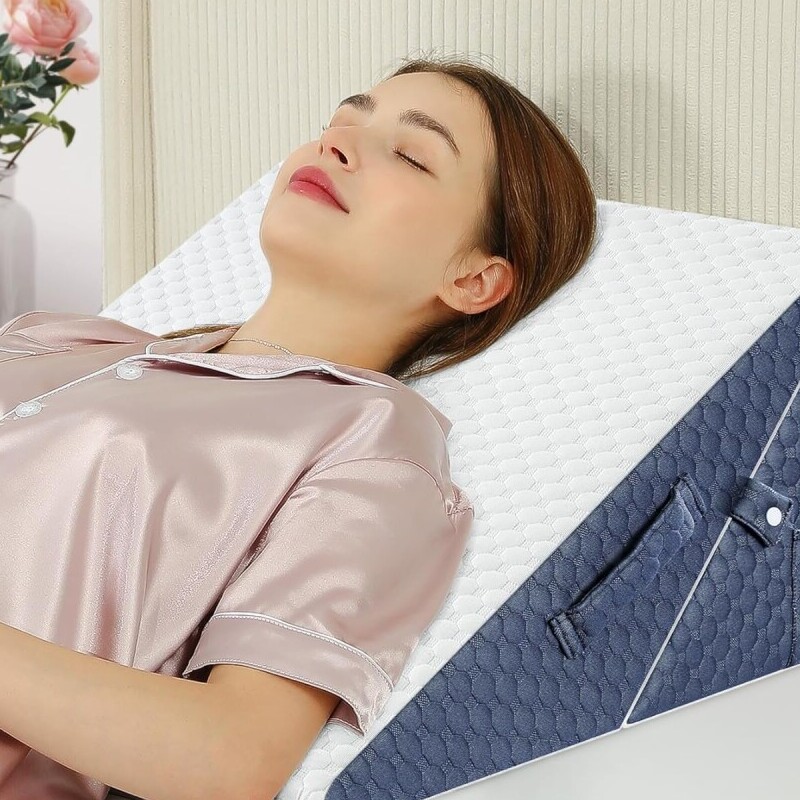Tinnitus and sleep apnea are more common than you might think. They impact countless folks worldwide, messing with more than just a good night’s sleep. Tinnitus, that persistent ringing in your ears, often seems like an annoying nuisance. Meanwhile, sleep apnea pauses your breathing during sleep, which is more serious than it sounds.
Sleep is a big deal for our overall health.
It’s when our body recharges, heals, and gets ready to face another day. Mess that up, and you’re looking at a whole slew of problems—not just with energy levels, but with heart health, mood, and even your brain function. Both tinnitus and sleep apnea can disrupt this essential process, each in their own aggravating way.
Now, here’s where things get interesting. You might be asking, “Can tinnitus cause sleep apnea?”
This is where I dig in to discover whether these two troublemakers are connected. There might be more linking them than meets the eye—or the ear, in this case!
Understanding Tinnitus: The Unending Buzz
Tinnitus is that annoying sound that only you can hear—think of it as your uninvited, invisible roommate. It might be a constant ring, a buzz, or even a hiss.

It’s inherently subjective because what you’re hearing doesn’t stem from any external source. This makes it tricky; diagnosing it accurately isn’t always straightforward.
The causes of tinnitus are as varied as the sounds themselves. Commonly, it arises from exposure to loud noises, ear infections, or age-related hearing loss. But it can also be a symptom of various health issues.
There are two main types to be aware of subjective tinnitus, where you’re the only person who hears it, and the less common objective tinnitus, which a doctor might hear during an examination.
Living with tinnitus is no walk in the park. It can mess with concentration during the day and pester your peace at night. It’s easy to see how it could wreak havoc on your sleep patterns like a midnight DJ set you never signed up for.
Managing tinnitus often involves adapting to its presence in your life. Sound therapies or background noise might help drown out the phantom sounds, allowing your brain and, more importantly, you, to get some rest.
Even when it feels bothersome, understanding what’s happening can be the first step to coping with and adapting to tinnitus.
Recommended Reading: Is There A Link Between Hearing Loss and Autism
What is Sleep Apnea? : The Silent Disruptor
Sleep apnea is like having a demanding sleep intruder that won’t let you rest peacefully.
Mainly characterized by repeated interruptions in breathing during sleep, it comes in a few flavors: obstructive, central, and complex. Each has its nuances, but they’re all equally tricky to manage.

Obstructive sleep apnea stands as the most common type, where throat muscles relax and block the airway. Central sleep apnea is less about physical blockage and more about your brain not sending the right signals to your muscles that control breathing. Complex, as you may guess, is a mix of both.
Key symptoms you might notice include loud snoring—often to the dismay of others nearby—choking or gasping sounds while you sleep, and a perpetual sense of fatigue that drags you down during the day.
It’s not just a nighttime issue; it spills over into every waking hour, making mundane tasks feel exhausting.
Ignoring sleep apnea can nudge you toward more severe health issues. Besides fatigue, there are increased risks for heart disease, high blood pressure, and even diabetes. Plus, let’s not forget the dangers of cognitive impairments—those annoying memory lapses you can do without.
Catching it early means fewer interruptions in your life landscape. Whether through lifestyle changes, medical devices, or some other form of treatment, addressing sleep apnea is crucial.
Not just for the sake of restful nights, but for overall well-being. After all, once you balance it out, life might just feel a bit more energized.
Is Tinnitus and Sleep Apnea Linked? – Tinnitus’ Role in Sleep Apnea Development
Ever wonder if tinnitus and sleep apnea might be part of the same troublesome gang?
They share some common ground.
Age, stress, and certain lifestyle choices like smoking or poor diet can be mutual contributors, affecting both conditions and amplifying their annoying presence in our lives.

Dig a bit deeper, and you might find tinnitus poking at your sleep quality. That constant ear ringing isn’t just a bother when you’re awake—it can seriously throw off your sleep cycle too. If you’re already on the edge with sleep apnea, this might feel like adding fuel to the fire.
Stress or anxiety linked with tinnitus is like adding an insomniac cherry on top of an already sleep-disrupted cake. Struggling with tinnitus can raise your stress levels, which in turn keeps you tossing and turning. It’s a vicious cycle that may worsen sleep apnea or mimic some of its symptoms.
There’s a link between your brain’s reaction to tinnitus and those pesky apnea episodes. Tinnitus can either overstimulate or stress out the brain, potentially impacting how it regulates breathing during sleep. It’s like your brain’s trying its best to cope, but the extra noise can cause it to mismanage your breathing patterns at night.
While science is still piecing together the full picture, understanding these potential interactions is vital.
It emphasizes the importance of seeking guidance from medical professionals if you start noticing overlaps in symptoms. Taking control can mean not letting these conditions control you.
Research Insights: What Science Reveals About Tinnitus and Sleep Apnea
The relationship between tinnitus and sleep apnea is a bit of a medical mystery, but researchers are on it.
Several studies have examined how these conditions might coexist, looking for any patterns or common threads.
One thing that studies have found is a notable overlap in patients dealing with both issues. It’s not uncommon for people with sleep apnea to report tinnitus and vice versa. This suggests they might share underlying mechanisms or perhaps exacerbate one another.
Research is uncovering some intriguing insights, especially around how shared risk factors might trigger both conditions. Things like stress, underlying health issues, or even genetics could play a role. Still, pinpointing every detail will need more digging.
There’s also ongoing research focusing on the body’s stress responses. Understanding how the brain processes stress and its effect on sleep and auditory systems is key. This might help crack the case on why and how these two conditions might interact.
Keeping an eye on the latest studies means we’re getting closer to answers. For now, recognizing the link between tinnitus and sleep apnea can help spark more conversations with healthcare professionals, especially if you’re experiencing symptoms of both.
How To Manage Tinnitus and Sleep Apnea?- Integrated Approaches
Tackling tinnitus and sleep apnea together can feel like juggling two tricky tasks. However, managing both effectively is possible with the right strategies in place.
Treatments for tinnitus center around therapies like sound therapy and cognitive behavioral therapy (CBT). These are designed to tune out the constant noise, helping your brain to relax and focus on more important things in life.
On the sleep apnea front, using continuous positive airway pressure (CPAP) machines can be a game-changer for keeping those airway blockages at bay. One of the cost-effective methods is to use a Sleep apnea pillow. You buy these from Amazon.com
Lifestyle changes, like shedding a few extra pounds or cutting back on smoking or alcohol, also contribute significantly.
Practical steps like establishing solid sleep hygiene practices can make a real difference.
Dimming the lights before bedtime, avoiding screens, and sticking to a regular sleep schedule are all essentials to consider. Think of it as setting the stage for peaceful, uninterrupted sleep.
Combining treatments for more holistic management can enhance your quality of life. Pairing sound therapy with CPAP, for instance, might tackle both challenges effectively, ensuring your nights (and days) are restful and energetic.
Getting a handle on both conditions often means looping in your healthcare providers. They can help tailor a plan that’s just right for you, focusing on treatments and lifestyle tweaks that work best in tandem.
Consulting the Experts: When Professional Guidance is Essential
Managing tinnitus and sleep apnea might feel daunting, so sometimes calling in the pros is your best move. Consulting a specialist can help unravel the complexity of these intertwined issues.
Getting connected with an ear, nose, and throat (ENT) specialist or audiologist can shine a light on your tinnitus troubles. They’re the experts when it comes to figuring out what’s causing that constant ringing or buzzing.
Similarly, a sleep specialist can provide insights into your sleep apnea. They can help pinpoint what’s disrupting your sleep and suggest treatments tailored to your specific needs. Testing methods like overnight sleep studies often reveal important details about what’s going on while you’re snoozing.
Creating a personalized treatment plan is often the key to effectively managing these conditions together. You’re looking at a team approach here, where medical pros bring their expertise to craft a plan that tackles both tinnitus and sleep apnea simultaneously.
If symptoms are getting in the way of daily life or quality sleep, don’t hesitate to reach out for medical advice. Getting timely help can make a world of difference, ensuring you’re on a path to better health and well-being.
Conclusion: Prioritizing Sleep for a Healthier Tomorrow
Exploring how tinnitus and sleep apnea might intersect highlights the importance of understanding and managing these conditions. Addressing both isn’t just about banishing that pesky nighttime noise or quieting the apnea—it’s about improving your whole quality of life.
Taking proactive steps, whether through medical treatments, lifestyle changes, or both, can profoundly impact your daily and nightly comfort.
And hey, while you’re refining those tweaks, remember there’s no shame in seeking guidance from healthcare pros when you need a bit of extra help.
Consider embracing solutions that support restful sleep, not just for peace and quiet but for overall well-being.
Making positive lifestyle adjustments today can build a healthier, more energetic tomorrow. Sleep is your ally, so it’s worth giving it the best chance possible to restore and rejuvenate your body and mind.
What have you found helpful in treating your tinnitus or sleep apnea?
Looking forward to hearing from you.
Regards and Take Care
Roopesh



Really glad to read this as I have suffered so much with tinnitus, mine is caused by PTSD and comes and goes as I have swollen blood vessels in my ears which cause deafness, ringing and a pulsating sound.
Fortunately it seems temporary as my PTSD heals my ears seem to get better. I have has many sleepless nights with this, its very hard because I get bad dreams with PTSD. I am glad to say that the worst is over now and I have had specialist therapy to heal my trauma
Hi there,
Thank you so much for sharing your experience. I can only imagine how challenging it must have been to deal with both tinnitus and PTSD simultaneously. It’s truly inspiring to hear about your resilience and the progress you’ve made through specialist therapy—healing from trauma is no small feat.
The connection between swollen blood vessels, tinnitus, and your symptoms is such a complex and personal journey. It’s encouraging to know that as your PTSD has improved, so has your tinnitus. I hope the positive trend continues and brings you more peaceful nights.
If you ever need support or want to share more about what’s helped you along the way, this space is always here for you. Wishing you continued healing and wellness!
Warm regards,
Roopesh